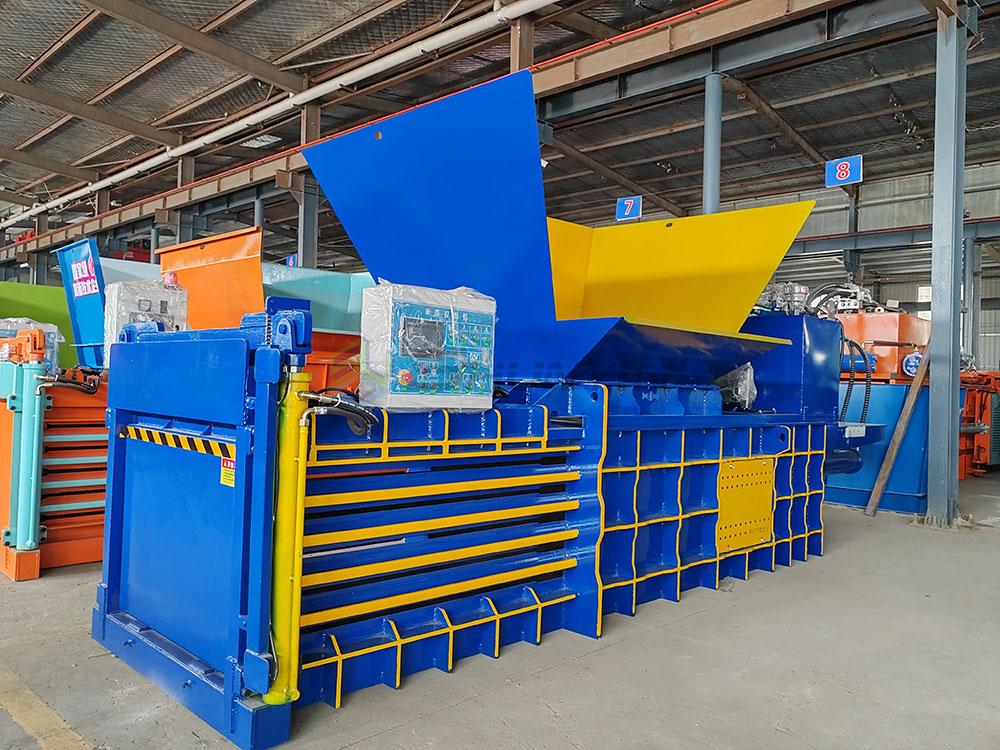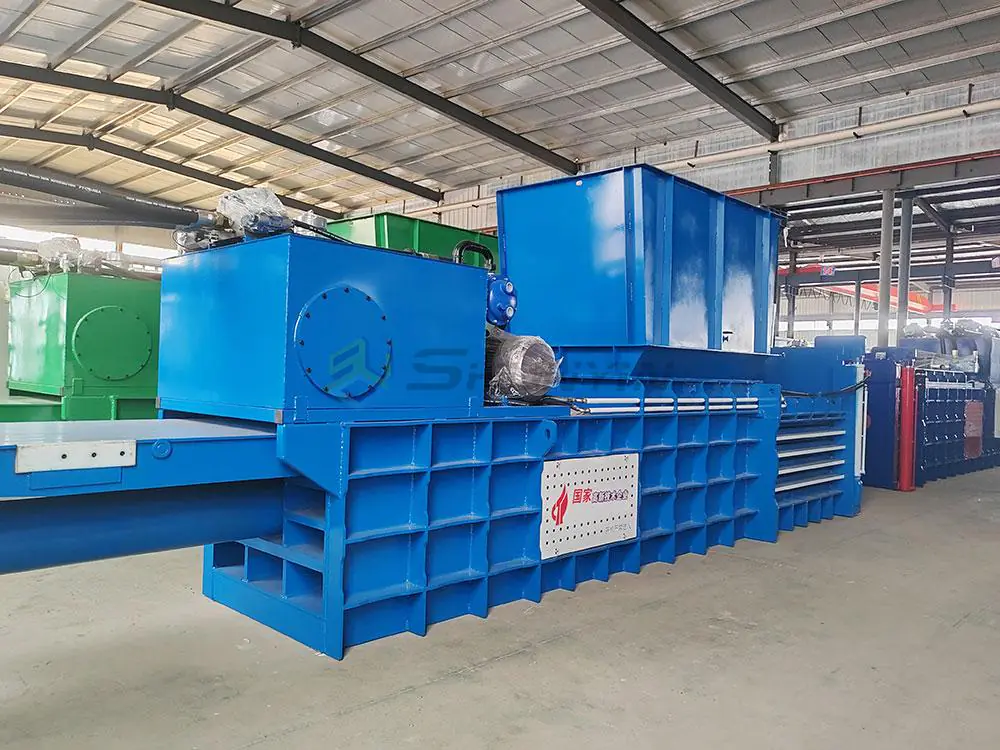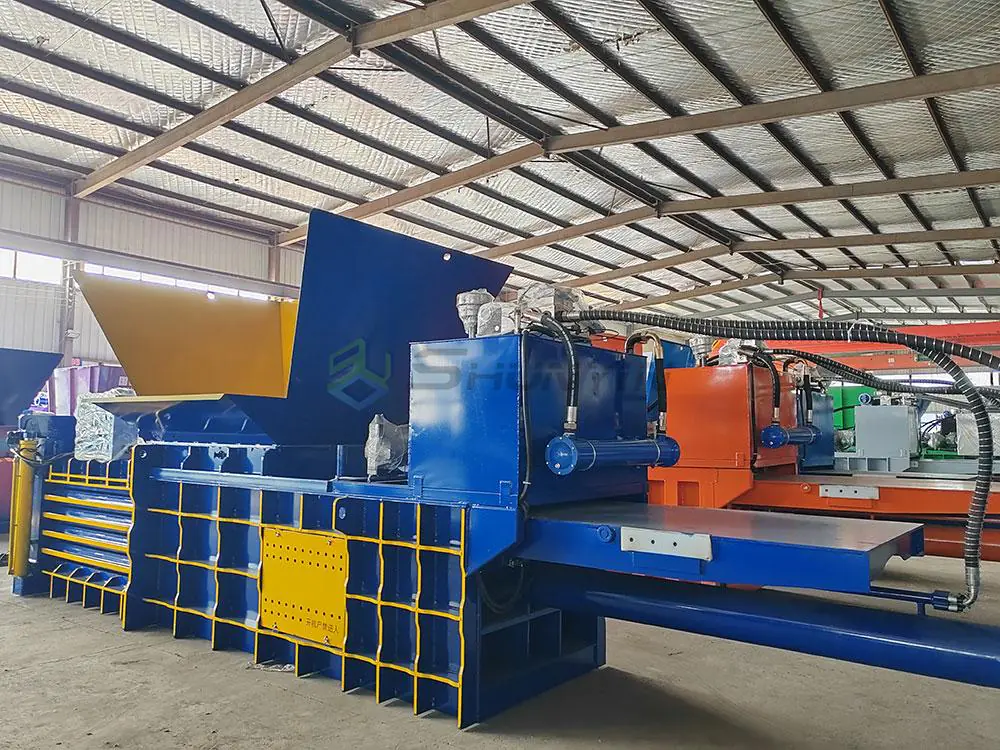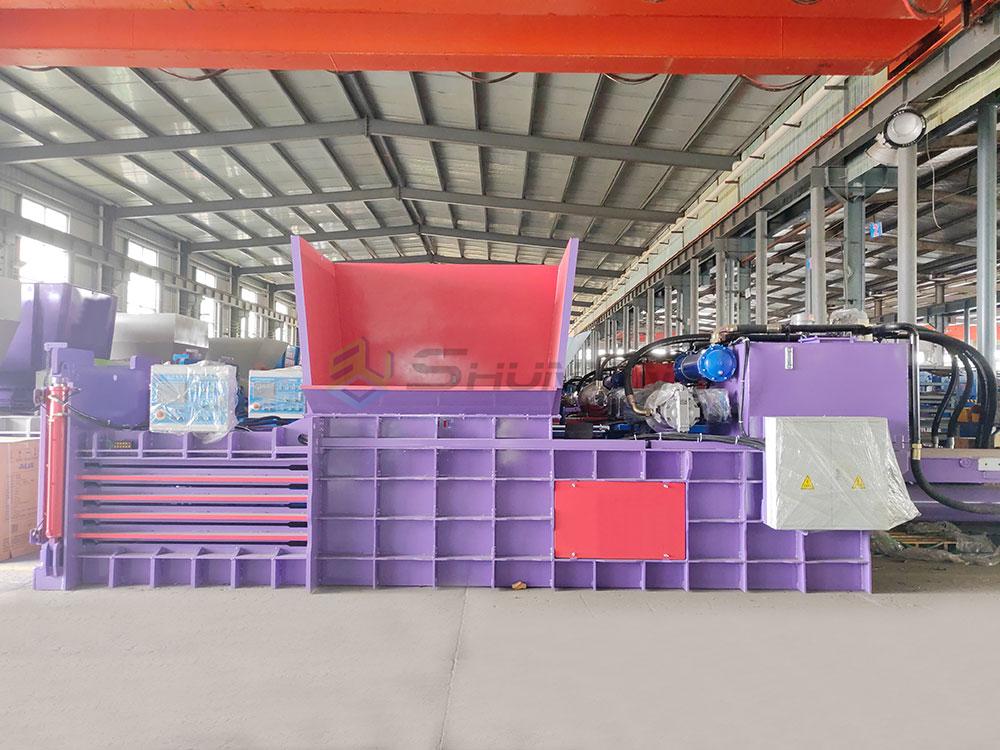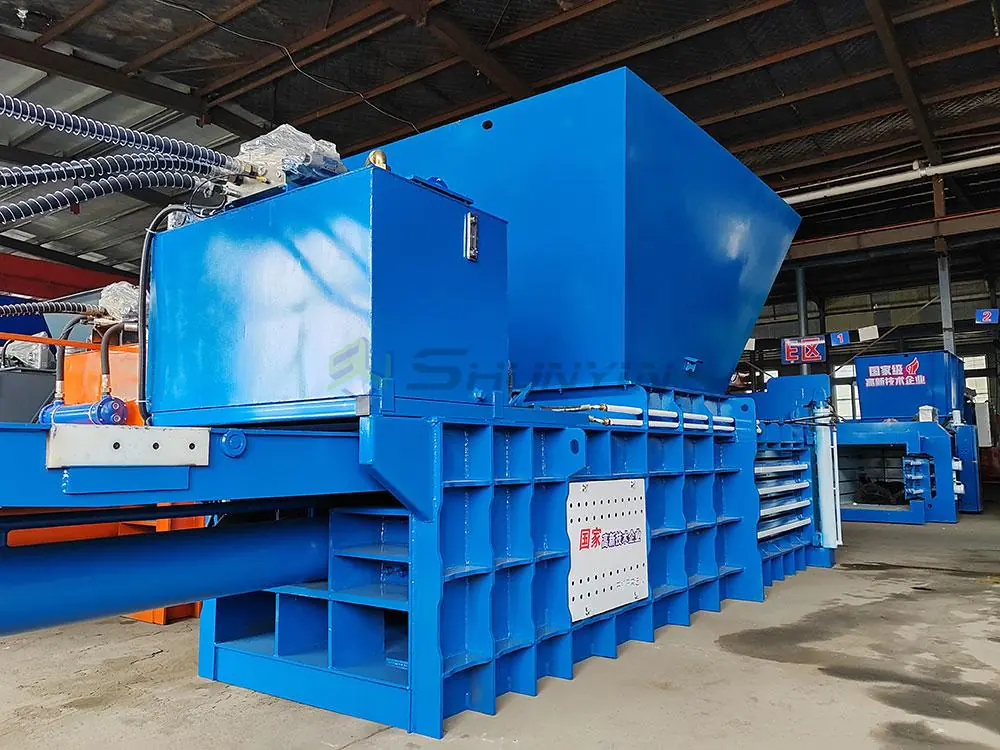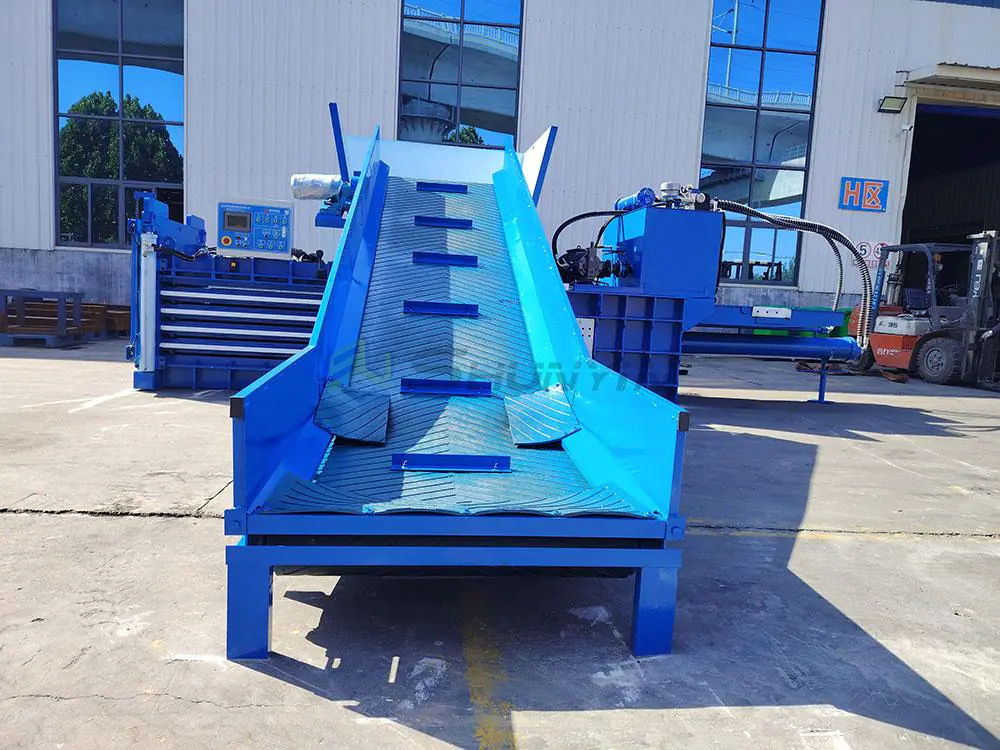
Al-Latif Industrial reduced plastic waste storage costs by 53% using Nanjing AutoBalers – processing 24 tons/hour into 1.2m³ bales achieving 97% density consistency under SASO 2830 standards.
Automatic horizontal balers use 450-980kN smart pressure systems adapting to material hardness fluctuations. The Saudi-upgraded XPress 9.0 model with Arabic HMI cuts energy use to 0.22kWh/kg while achieving 99.3% hydraulic efficiency – critical under new 0.48 SAR/kWh industrial electricity tariffs.
Discover operational blueprints transforming Saudi recycling economics.
How Does a Bale Press Work?
Core mechanics and Saudi-specific adaptations
7-Stage Smart Pressing Cycle
-
Auto Feed Calibration
- Laser-scans material height (±1mm accuracy)
- Rejects oversized items >400mm via AI vision
-
Moisture Detection
- 38GHz microwaves measure water content
- Auto-adjusts compression dwell time

- Intelligent Compression
| Parameter | Mechanical Press | Auto Hydraulic | Improvement |
|---|---|---|---|
| Force Consistency | ±18% | ±0.7% | 26x↑ |
| Speed Adjustments | 2 fixed modes | 79 adaptive modes | 40x↑ |
| Energy Recovery | 0% | 38% | New Feature |
Dammam Scrap Yard Results:
- 880 tons/month extra processing capacity
- Reduced hydraulic oil consumption by 62%
- Met 93/63/EEC transport certification requirements
What Is the Purpose of a Baling Machine?
Creating economic gateways
Value Chain Transformation
| Stage | Manual Processing | Auto Baling | Value Added |
|---|---|---|---|
| Storage Costs | SAR 185/m³ | SAR 59/m³ | 68% ↓ |
| Transport Efficiency | 23% trailer fill | 89% trailer fill | 3.9x↑ |
| Resale Value | SAR 780/ton | SAR 1,240/ton | 59% ↑ |

Strategic Saudi Applications
NEOM City Projects:
- Processes 1800+ material types via adaptive AI
- Enables 94% construction waste reuse
- Complies with LEED v4.1 MR credits
Plastic Recycling Advantages:
- Maintains polymer chain integrity
- Auto-separates PVC contaminants (<0.1% tolerance)
- Generates API data for SIRCAL reporting
What Is the Use of Vertical Baler?
Niche applications in Saudi context
Vertical vs Horizontal Performance
| Metric | Vertical Baler | Horizontal Baler | Advantage |
|---|---|---|---|
| Throughput | 2.1 tons/hour | 19.4 tons/hour | 9.2x↑ |
| Bale Density | 520kg/m³ | 960kg/m³ | 85%↑ |
| Floor Space | 17m² | 36m² | 2.1x↓ |

Vertical Baler Survival Zones
Saudi Medical Waste Handling:
- Processes 670kg/hour infected textiles
- Meets MOH BioSafety Level 3 protocols
Small Workshops:
- Budget under 380k SAR
- Space below 20m²
- Under 5 tons/day output
Key Limitations:
✗ Can’t process metal scraps >3mm thickness
✗ Requires manual strapping
✗ No smart sensor integration
How Do You Use a Baling Machine?
Operational mastery for Saudi technicians
11-Point Startup Protocol
-
Pre-Check (Arabic Checklist)
- Hydraulic oil ≥68℃ preheat (desert mornings)
- Confirm RAMSIS sensor calibration
-
Material Programming
- Select from 48 preset Saudi scrap profiles
- Customize via MODA compliance parameters

- Safety Lockouts
| Risk Factor | Prevention Method | Saudi Standard |
|---|---|---|
| Hydraulic Surge | 3-stage pressure relief valves | SASO 2798 |
| Dust Explosion | ATEX-certified spark detection | NCEC 2023 |
| Heat Stress | Enclosed AC operator cabins | MOL 2418 |
Jazan Economic City Case:
- Reduced workforce injuries by 91%
- Increased machine uptime to 98.7%
- Qualified for 17% ZATCA green tax rebate
Conclusion
Saudi Operators Must Prioritize:
1) 800+ kN compression force for construction debris
2) Arabic/English toggle interfaces
3) SASO 3403-2024 energy compliance
Mandatory Verification Steps:
☑️ 150-hour continuous desert operation test
☑️ 5-meter vertical drop certification
☑️ RFID-based maintenance logging
Implementation Roadmap:
- Conduct ISO 13849-1 risk assessments
- Train operators through MOH Platform
- Install MODA-approved IoT monitoring
Critical Maintenance Focus:
- Replace HNBR seals every 920 operating hours
- Clean sand filters every 112 operation hours
- Validate pressure sensors ±1.2% tolerance
Pro Tip: Always verify the Chinese GC marking corresponds with SASO 2797 standards – 23% of Saudi import rejections stem from certification mismatches. Demand factory-trained Arabic technicians for commissioning.


